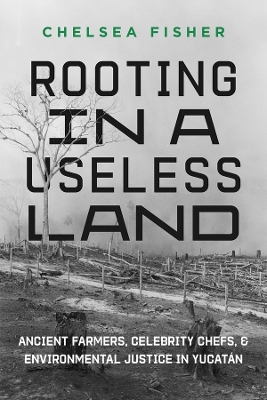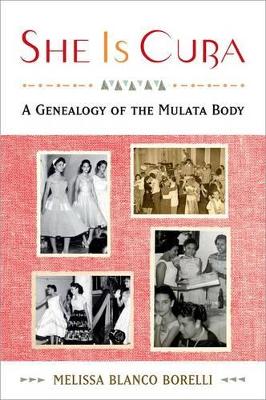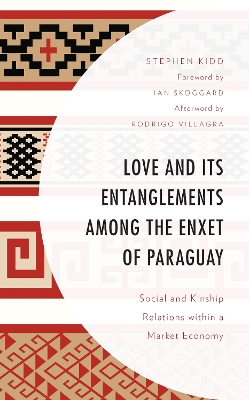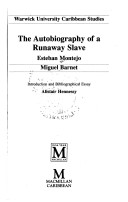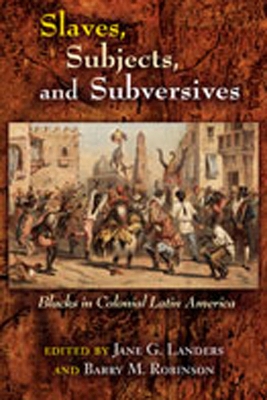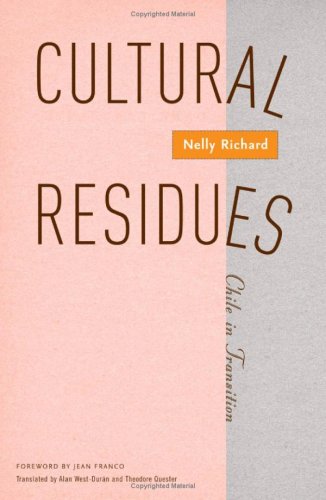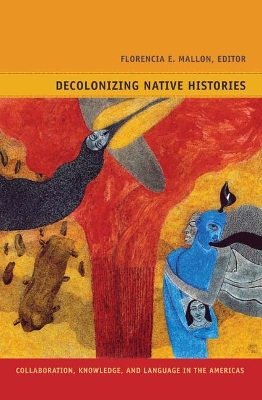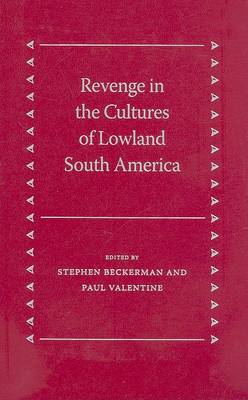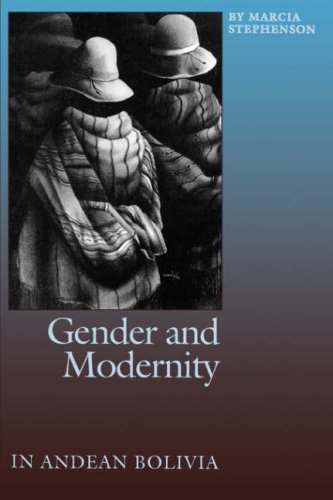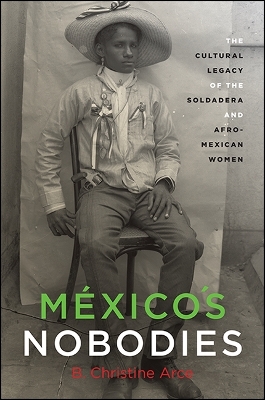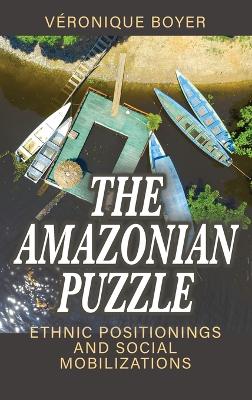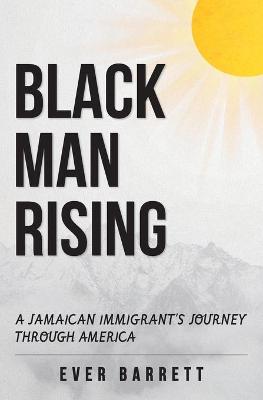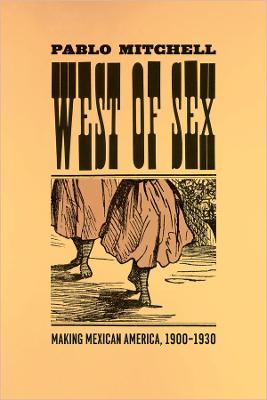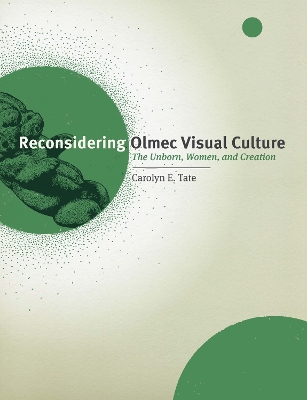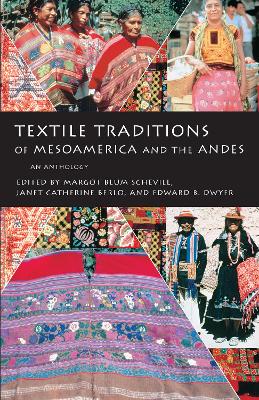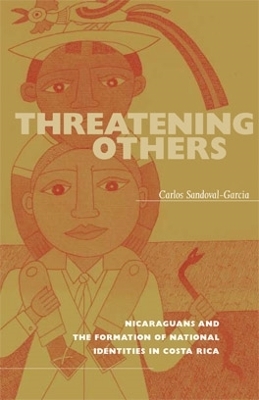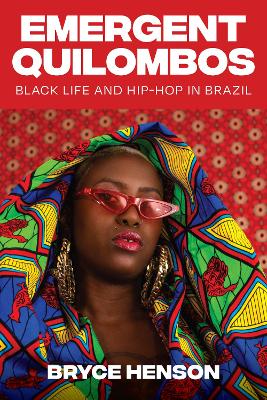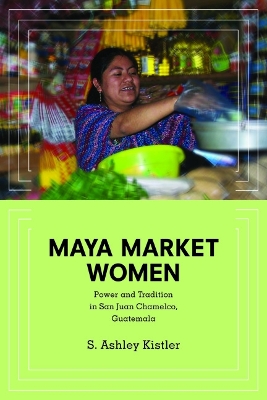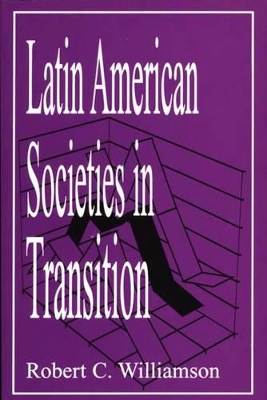In Rooting in a Useless Land, Chelsea Fisher examines the deep histories of environmental-justice conflicts in Mexico's Yucatán Peninsula. She draws on her innovative archaeological research in Yaxunah, an Indigenous Maya farming community dealing with land dispossession, but with a surprising twist: Yaxunah happens to be entangled with prestigious sustainable-development projects initiated by some of the most famous chefs in the world. Fisher contends that these sustainable-development initiati...
She is Cuba: A Genealogy of the Mulata Body traces the history of the Cuban mulata and her association with hips, sensuality and popular dance. It examines how the mulata choreographs her racialised identity through her hips and enacts an embodied theory called hip(g)nosis. By focusing on her living and dancing body in order to flesh out the process of identity formation, this book makes a claim for how subaltern bodies negotiate a cultural identity that continues to mark their bodies on a daily...
In Love and its Entanglements among the Enxet of Paraguay: Social and Kinship Relations within a Market Economy, Stephen Kidd examines the social discourse and value systems of the Indigenous Enxet people. Kidd’s analysis focuses on how the Enxet navigate the market economy in Paraguay through their values of egalitarianism, generosity, and personal autonomy.
Slaves, Subjects, and Subversives (Dialogos)
Almost eleven of the twelve million Africans who survived the trauma of enslavement in Africa and the horrors of the Middle Passage, remade their lives in territories claimed by Spain or Portugal. Drawing on a wealth of previously unused sources, the authors show that although plantation slavery was a horrible reality for many Africans and their descendants in Latin America, blacks experienced many other realities in Iberian colonies. Paul Lovejoy analyses a treatise by a seventeenth-century Mus...
Dancing with the Devil (New Directions in Anthropological Writing S.)
by Jose Eduardo Limon
A complex portrait of postdictatorial Chile by one of that country’s most incisive cultural critics, this book uses memoirs, photographs, the plastic arts, novels, and other texts—the “residues” of a culture—to analyze the political-cultural Chilean landscape in the wake of Augusto Pinochet’s seventeen-year military rule. Such residual areas reveal the flaws and lapses in Chile’s transition from violent military dictatorship to electoral democracy. Nelly Richard's analysis ranges from an explor...
Decolonizing Native Histories (Narrating Native Histories)
by Florencia E Mallon
Decolonizing Native Histories is an interdisciplinary collection that grapples with the racial and ethnic politics of knowledge production and indigenous activism in the Americas. It analyzes the relationship of language to power and empowerment, and advocates for collaborations between community members, scholars, and activists that prioritize the rights of Native peoples to decide how their knowledge is used. The contributors—academics and activists, indigenous and nonindigenous, from discipli...
Revenge in the Cultures of Lowland South America
This extraordinary ethnography is the first devoted to the study of revenge. The contributors describe this social phenomenon in fourteen tribal societies, comparing its violent manifestations as well as its more idiosyncratic forms. Blood revenge at spear point is common in certain regions of aboriginal lowland South America; in other areas revenge is implicated in seemingly unrelated areas of daily life, from child naming to explanations for sickness.Revenge is a universal human motive that re...
A collection of papers which analyse how the interlocking tropes of fashion, motherhood, domestication, hygiene, and hunger are used as tools for the production of dominant, racialized ideologies of womanhood.
México's Nobodies (SUNY series, Genders in the Global South)
by Christine B. Arce
Honorable Mention, 2018 Elli Kongas-Maranda Professional Award presented by the Women's Studies Section of the American Folklore Society Winner of the 2018 Katherine Singer Kovacs Prize presented by the Modern Language Association Winner of the 2016 Victoria Urbano Critical Monograph Book Prize presented by the International Association of Hispanic Feminine Literature and Culture México's Nobodies examines two key figures in Mexican history that have remained anonymous despite their proliferat...
Brazilian Cinema and the Aesthetics of Ruins (World Cinema)
by Guilherme Carréra
Winner of the British Association of Film, Television and Screen Studies (BAFTSS) 2023 Award for Best First Monograph. Winner of the Association of Moving Image Researchers (AIM) 2022 Award for Best Monograph.Guilherme Carréra’s compelling book examines imagery of ruins in contemporary Brazilian cinema and considers these representations in the context of Brazilian society. Carréra analyses three groups of unconventional documentaries focused on distinct geographies: Brasília - The Age of Stone...
In the Brazilian Amazon region, cultural “mixture” is expressed in the interaction of city and hinterland, of Indigenous and Black, of religiosity and politics. By examining the multiple cultural and ethnic threads that traverse this landscape, The Amazonian Puzzle sets out to show how the category of caboclo (a powerful spiritual entity to some, and to others a despised peasant of mixed ancestry) reveals deep currents of ethnic recompositions, religious interpenetration, and social hierarchy....
Sex can be an oppressive force, a tool to shame, divide, and control a population. But it can also be a force for change, for the legal and physical challenge of inequity and injustice. In "West of Sex", Pablo Mitchell uses court transcripts and criminal cases to provide the first coherent picture of Mexican-American sexuality at the turn of the twentieth century, and a truly revelatory look at sexual identity in the borderlands. As Mexicans faced a rising tide of racial intolerance in the Ameri...
Once there was a Quechua folktale. It begins with a trickster fox's penis with a will of its own and ends with a daughter returning to parents who cannot recognize her until she recounts the uncanny adventures that have befallen her since she ran away from home. Following the strange twists and turnings of this tale, Catherine J. Allen weaves a narrative of Quechua storytelling and story listening that links these arts to others—fabric weaving, in particular—and thereby illuminates enduring Ande...
Recently, scholars of Olmec visual culture have identified symbols for umbilical cords, bundles, and cave-wombs, as well as a significant number of women portrayed on monuments and as figurines. In this groundbreaking study, Carolyn Tate demonstrates that these subjects were part of a major emphasis on gestational imagery in Formative Period Mesoamerica. In Reconsidering Olmec Visual Culture, she identifies the presence of women, human embryos, and fetuses in monuments and portable objects datin...
Textile Traditions of Mesoamerica and the Andes
In this volume, anthropologists, art historians, fiber artists, and technologists come together to explore the meanings, uses, and fabrication of textiles in Mexico, Guatemala, Ecuador, Peru, and Bolivia from Precolumbian times to the present. Originally published in 1991 by Garland Publishing, the book grew out of a 1987 symposium held in conjunction with the exhibit "Costume as Communication: Ethnographic Costumes and Textiles from Middle America and the Central Andes of South America" at the...
Threatening Others (Research in International Studies, Latin America)
by Carlos Sandoval-Garcia
During the last two decades, a decline in public investment has undermined some of the national values and institutions of Costa Rica. The resulting sense of dislocation and loss is usually projected onto Nicaraguan “immigrants.” Threatening Others: Nicaraguans and the Formation of National Identities in Costa Rica explores the representation of the Nicaraguan “other” in the Costa Rican imagery. It also seeks to address more generally why the sense of national belonging constitutes a crucial ide...
2024 Roberto Reis Book Prize, First Book category, Brazilian Studies Association Winner — 2024 Critical and Cultural Studies Division Outstanding Book Award, National Communication Association (NCA) Critical and Cultural Studies DivisionHow disenfranchised Black Brazilians use hip-hop to reinvigorate the Black radical tradition. Known as Black Rome, Salvador da Bahia, Brazil, is a predominantly Black city. The local art, food, and dance are closely linked to the population’s African roots. Yet...
As cultural mediators, Chamelco's market women offer a model of contemporary Q'eqchi' identity grounded in the strength of the Maya historical legacy. Guatemala's Maya communities have faced nearly five hundred years of constant challenges to their culture, from colonial oppression to the instability of violent military dictatorships and the advent of new global technologies. In spite of this history, the people of San Juan Chamelco, Guatemala, have effectively resisted significant changes to t...
This is an examination of the social structures that shape Latin American societies. Knowledge of demography, rural and urban life, and ethnic and status relationships is critical for understanding the political and economic fabric of those societies. Although the author draws on materials from all the social sciences, the primary frame of reference is sociological. The book presents, in an organized form, the findings from an ever-growing number of studies about Latin American society. The boo...
